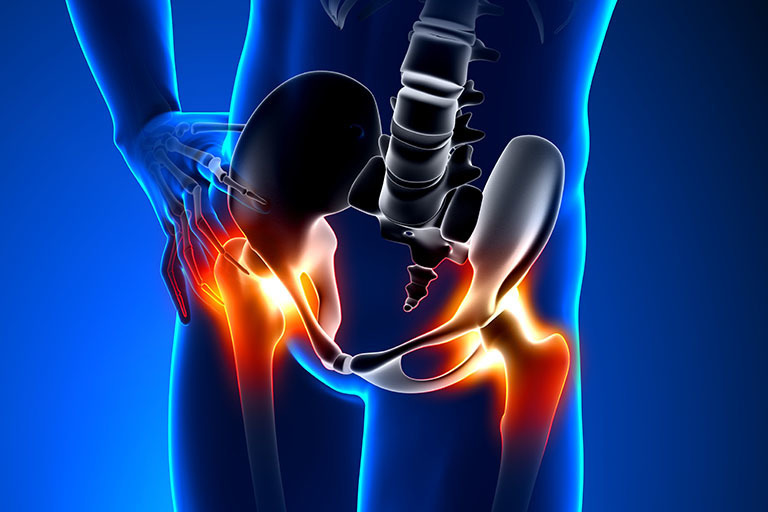
At Tulsi Wellness Club in San Diego, our naturopathic doctors are dedicated to providing comprehensive support for women navigating the various stages of their health journey. One common concern during perimenopause is hip pain, which can significantly impact daily life and overall well-being. In this article, we explore the connection between perimenopause and hip pain, and offer practical strategies for managing this symptom effectively.
What is Perimenopause?
Perimenopause is the transitional phase leading up to menopause, typically occurring in a woman’s 40s or early 50s. During this time, the body undergoes hormonal changes as ovarian function declines. These hormonal fluctuations can lead to a range of symptoms, including irregular menstrual cycles, hot flashes, mood swings, and joint pain, including hip pain.
The Connection Between Perimenopause and Hip Pain
Hip pain during perimenopause can be attributed to several factors related to hormonal changes and their impact on the body:
-
Hormonal Fluctuations: Estrogen, a key hormone that fluctuates during perimenopause, plays a role in maintaining joint health and bone density. Decreased estrogen levels can lead to reduced cartilage protection and lower bone density, potentially contributing to joint pain and discomfort.
-
Increased Inflammation: Hormonal changes can also lead to increased inflammation in the body. This inflammation may exacerbate existing joint issues or contribute to new pain and stiffness in the hips and other joints.
-
Weight Gain: Many women experience weight gain during perimenopause, partly due to hormonal changes. Additional weight can put extra stress on the hip joints, leading to increased pain and discomfort.
-
Muscle Weakness and Imbalance: Hormonal changes can affect muscle mass and strength, which may contribute to poor joint support and alignment. Weak or imbalanced muscles around the hips can lead to pain and functional issues.
-
Osteoporosis Risk: Decreased estrogen levels during perimenopause increase the risk of osteoporosis, a condition characterized by weakened bones. Osteoporosis can lead to joint pain and an increased risk of fractures or other injuries.
Managing Hip Pain During Perimenopause
If you’re experiencing hip pain during perimenopause, several strategies can help alleviate symptoms and improve overall comfort:
-
Consult with a Healthcare Provider: If you have persistent or severe hip pain, it’s essential to consult with a healthcare provider. They can help diagnose the underlying cause of your pain and recommend appropriate treatments or therapies.
-
Incorporate Regular Exercise: Engage in low-impact exercises that support joint health and maintain muscle strength. Activities such as swimming, cycling, and walking can help improve joint function and reduce pain. Strength training exercises focusing on the core and lower body can also help support and stabilize the hip joints.
-
Focus on a Balanced Diet: A diet rich in anti-inflammatory foods can help reduce joint pain and support overall health. Include foods such as leafy greens, fatty fish, nuts, and berries in your diet. Ensure you’re getting adequate calcium and vitamin D to support bone health.
-
Maintain a Healthy Weight: Managing your weight can reduce stress on the hip joints and alleviate pain. Combine a balanced diet with regular physical activity to achieve and maintain a healthy weight.
-
Consider Hormone Therapy: Hormone replacement therapy (HRT) may be an option for some women to manage symptoms related to hormonal fluctuations, including joint pain. Discuss the potential benefits and risks of HRT with your healthcare provider.
-
Explore Pain Management Techniques: Non-pharmacological pain management techniques such as physical therapy, acupuncture, or massage can offer relief from hip pain. Consult with a healthcare provider or specialist to explore these options.
-
Practice Stress Management: Chronic stress can exacerbate pain and discomfort. Incorporate stress-reducing practices such as mindfulness, meditation, or yoga to help manage overall well-being and potentially reduce pain levels.
-
Use Supportive Footwear: Proper footwear can provide better support and alignment, reducing strain on the hips and helping alleviate pain. Choose shoes with adequate cushioning and arch support.
Conclusion
Hip pain during perimenopause can be a challenging symptom, but understanding its connection to hormonal changes and implementing effective management strategies can make a significant difference. At Tulsi Wellness Club in San Diego, we are committed to helping you navigate this transitional phase with practical advice and holistic support.
If you are experiencing hip pain or have questions about managing perimenopausal symptoms, contact Tulsi Wellness Club today. Our team of experts is here to provide personalized guidance and support to help you achieve optimal health and well-being throughout perimenopause and beyond.
Dr. Devin Stone
Contact Me


